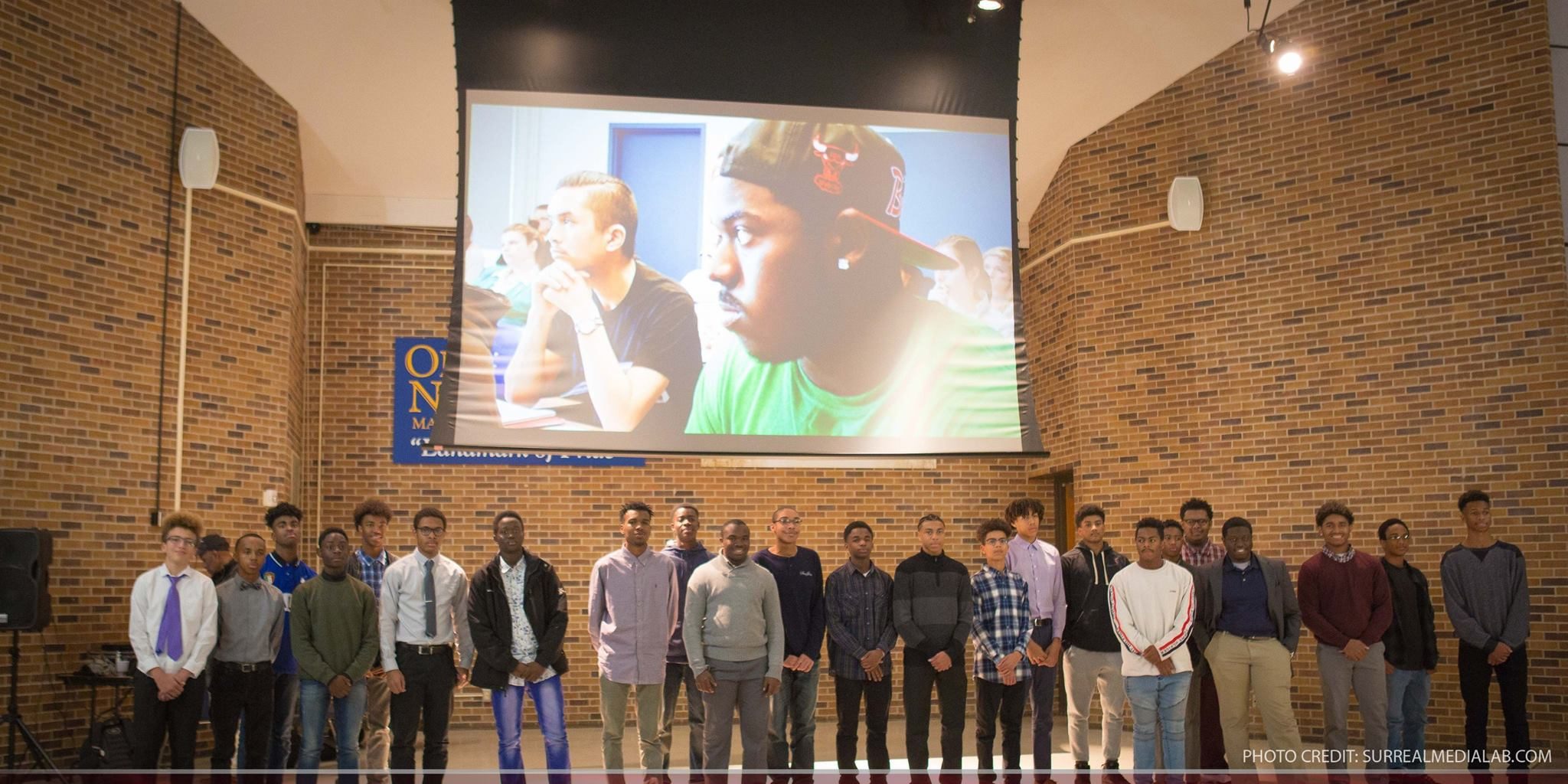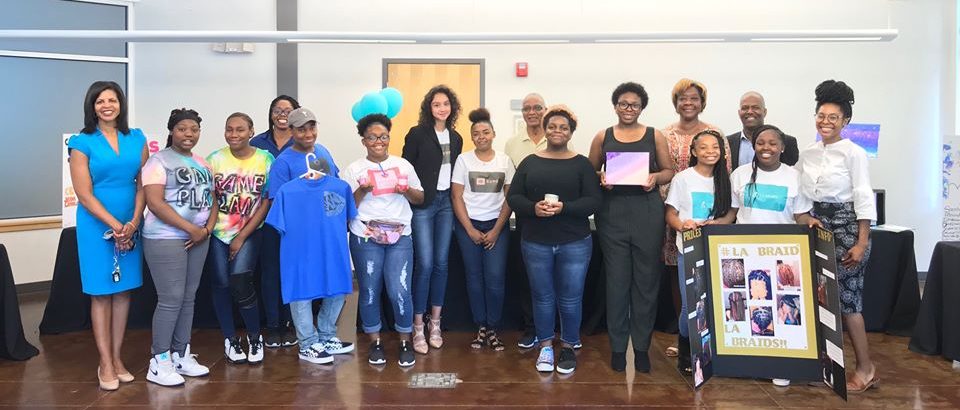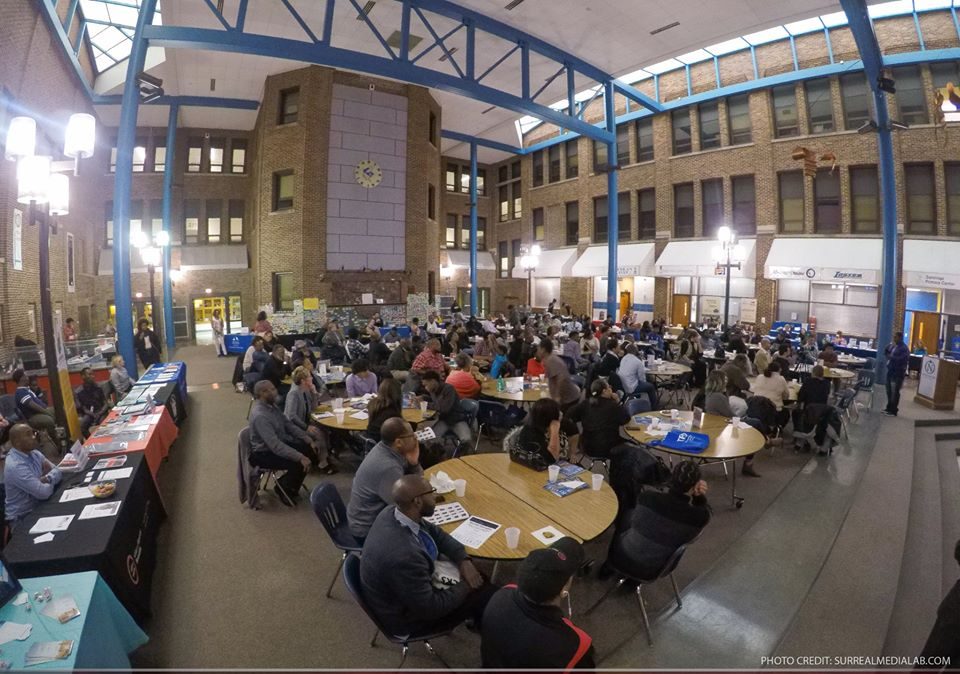Cradle to Career
Strategic Collaborative

In 2009, based on three years of ground work and collaboration, the Empowerment Network worked with the Omaha Public Schools District and a number of other partners to develop a comprehensive plan for education in North Omaha referred to the as the Cradle to Career Initiative.
11 years later, the Cradle to Career Collaborative has worked together to produced tangible results. The high school graduation rates have improved for African-American students from 50% to 81%. The percent of African-Americans with bachelor degrees has improved from 16% to 22% based on the American Community Survey. Community partners are working with the Omaha Public Schools District to provide more services including, but not limited to: Early Childhood Education, Mentoring, Physical and Mental Health, Vision Screening, ACT and College Prep, Summer Jobs and Internships, On the Job Training, After School Programming and much more.
The collective work has been recognized by Harvard University, US Department of Education, Obama Foundation, National Education Association and others.

The Cradle to Career approach integrates best practices from leading efforts around the nation and builds on the feedback and insights from literally thousands of parents, students, community leaders, elected officials, business executives, faith leaders, community activists, and representatives from hundreds of organizations. Now, seven years later, the collaborative has grown tremendously.
The findings and recommendations from the North Omaha Cradle to Career Initiative have been wrapped into the Empowerment Network’s 7 Step Model and Transformation Plan that was initially submitted as a Promise Neighborhoods federal grant application. While the Network did not receive the highly competitive federal grant, the collaborative model and framework received some of the highest scores in the country.
The U.S. Department of Education recognized the model as a high scoring and highly recommended strategy. Local foundations including the Weitz Family Foundation have supported the implementation of the Cradle to Career Collaborative.

The Collaborative includes nearly 100 organizations, but the core group includes: The Empowerment Network, Omaha Public Schools, Urban League of Nebraska, Omaha Education Association, Learning Community, Creighton University, Metropolitan Community College, Omaha Economic Development Corporation, University of Nebraska at Omaha, 100 Black Men of Omaha, MentorNebraska, Collective for Youth, Charles Drew Health Center, Douglas County Commissioners and Health Department, College is Possible, City of Omaha, African-American Achievement Council and others.
The Learning Community has worked with the AIM Institute, community partners, and OPS to develop a strategic plan for Sub-Council 2 which fits perfectly within the Cradle to Career model. All of these organizations have current projects at various stages inside the North Omaha Village Zone focus area.

Dr. Cheryl Logan
Omaha Public Schools District
Superintendent
Moving Forward.
The visionary goal of the Cradle to Career Initiative:
100% of students moving from the cradle to successful entry into the career field of their choice. Along the way, we have established critical benchmarks:
1) All students are prepared to enter kindergarten.
2) All students achieve academically – on grade level or above.
3) All students graduate from high school with a marketable skill and prepared for college/post secondary training.
4) All students are provided an opportunity to give back to their community through service and civic engagement.
5) All students graduate from college/post secondary training and successfully enter the career of their choice or launch a successful business. Each goal has specific measures, strategies, and identified actions, with an emphasis on evaluation, outcomes and longitudinal data.
In addition to the supports needed for students, the Network’s holistic strategy incorporates the other key elements of the 7 Step Empowerment Plan. Realizing that we need to surround students with positive and supportive environments, we are partnering with community organizations to implement initiatives in these areas:
1) Employment and Entrepreneurship
2) Education and Youth Development
3) Housing, Neighborhoods, and Transportation
4) Faith and Hope
5) Violence Intervention and Prevention
6) Health and Healthy Families
7) Arts, Culture, History, Entertainment, and Communications.
